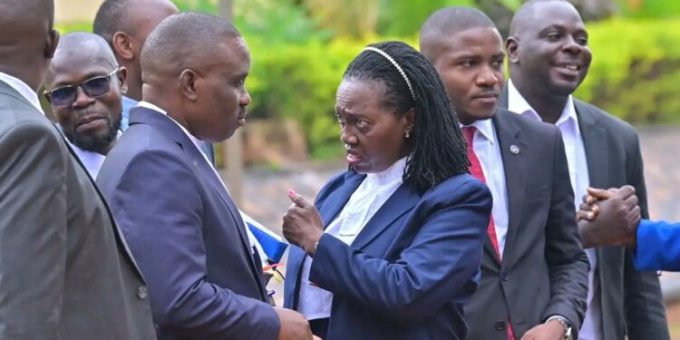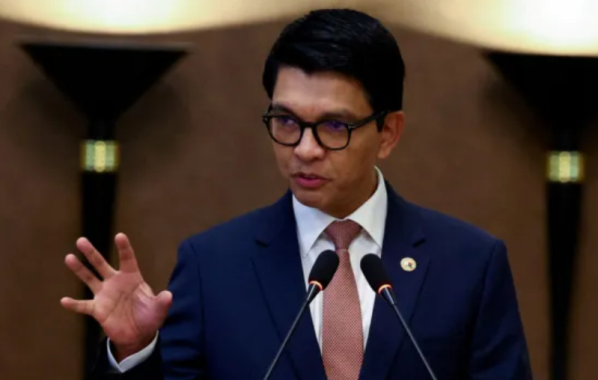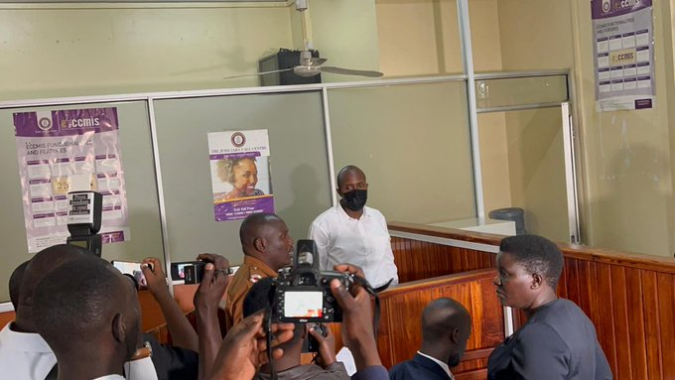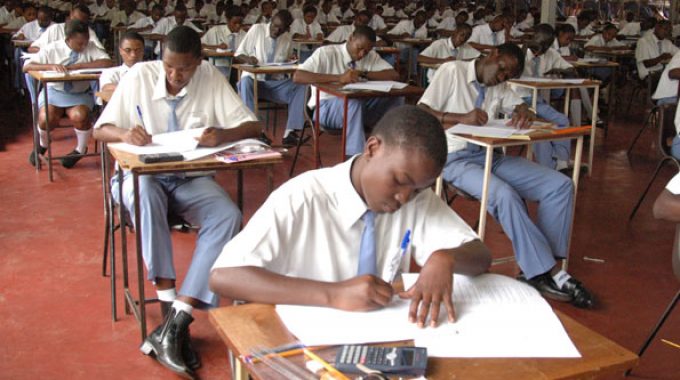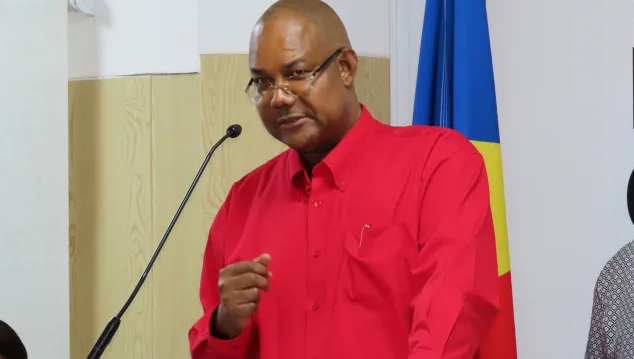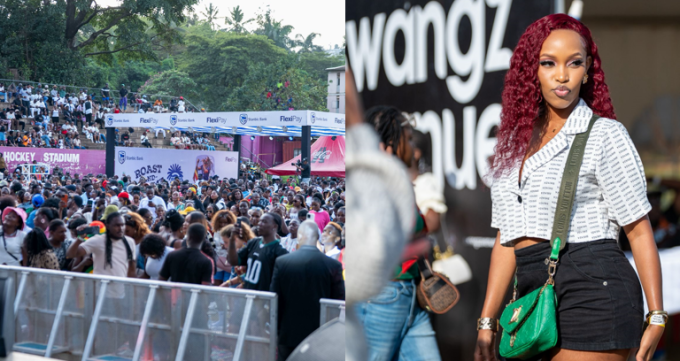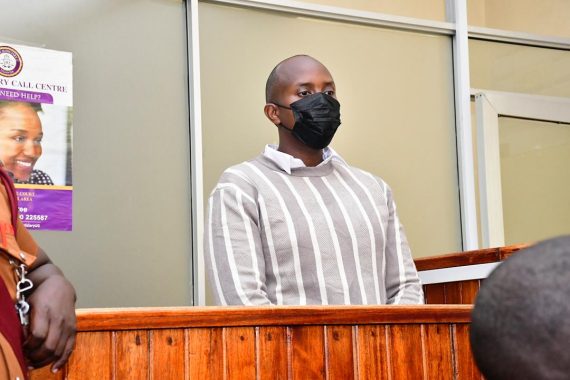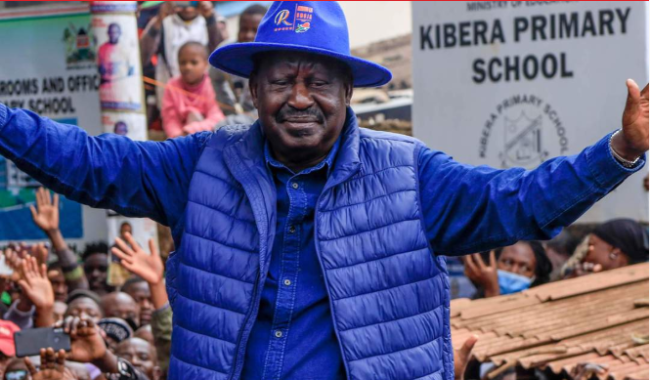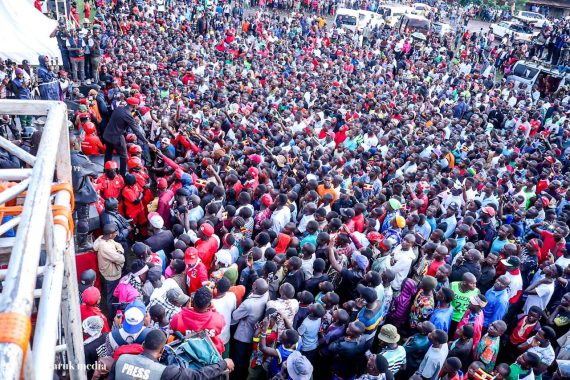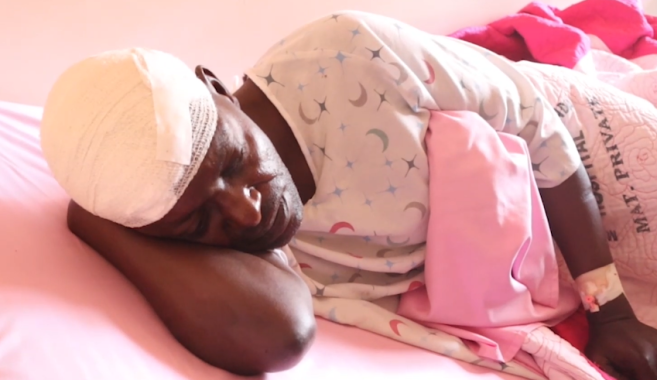Drama unfolded at the Judiciary headquarters in Kampala when a group of high-profile lawyers, including Kampala Lord Mayor Erias Lukwago, Kenyan politician Martha Karua, and human rights advocate Eron Kizza, was initially barred from accessing the premises.
The group aimed to meet the Chief Justice to discuss a contentious Constitutional Court ruling declaring the trial of civilians by the General Court Martial unconstitutional.
Adding to the tension, journalists accompanying the team were denied entry, prompting accusations of a lack of transparency. Lukwago expressed concern about the implications of barring the media, calling it “an affront to public confidence in the Judiciary.”
After lengthy negotiations, the lawyers were finally allowed into the premises and met the Chief Justice’s private secretary. Speaking to journalists after the meeting, Lukwago explained that the team had presented their concerns, particularly regarding delays in implementing court orders.
“We delivered the apologies of the private secretary and presented our case to him, awaiting feedback,” Lukwago said.
Martha Karua, the lead Counsel in the case raised additional concerns about the judiciary’s treatment of the press during the visit.
“Trials should be public, and the press is an essential part of a public process. The judiciary’s conduct resembled that of the General Court Martial, where access is often restricted,” Karua remarked.
She added: “We have conveyed our dismay at the way we have been treated because the court is now behaving like the general court martial where access to the premises was a big issue and this should not happen.”
She further pointed out that they drew attention to a key Supreme Court order linked to Constitutional Application No. 5 of 2021. This order stayed a Constitutional Court ruling that declared trying civilians in the General Court Martial unconstitutional. However, the lawyers pointed out that although the Supreme Court had directed an expedited hearing, judgment on the matter has been delayed since 2021.
Karua said that the delay undermines justice and enables the continued trial of civilians, such as Dr. Kizza Besigye, in military courts.
“We have asked for the judgment to be delivered expeditiously to resolve this impasse and protect civilians’ constitutional rights,” she said.
The legal team urged the Chief Justice to make an administrative pronouncement discouraging the military from trying civilians until the Supreme Court delivers its judgment.
“I’m informed the case was heard and finalized in 2021 but since 2021 three years later judgment has not been delivered by the supreme court that the delay in the judgment is a violation of the order by the supreme court and we were therefore invoking case administrative jurisdiction to cause this judgment to be delivered because the stay of those orders is what is giving the military license to force Dr. Besigye, and many other civilians we saw in that court to be tried by the general court martial.” he said
The Constitutional Court ruling in question has sparked widespread debate following the detention of veteran politician Kizza Besigye who was recently slapped with charges before the Army Court Martial.
Critics of the court Martial’s jurisdiction over civilians have long argued that such trials violate fundamental rights to a fair hearing. The legal team was expected to press the Chief Justice for swift implementation of the ruling, which has implications for numerous pending cases.
In a landmark 2021 ruling, the Constitutional Court declared that subjecting civilians to trial under the General Court Martial contradicts the 1995 Constitution. The ruling affirmed that the authority to try civilians rests solely with the judicature, not military courts.
Three justices including Kenneth Kakuru (RIP), Geofrey Kiryabwire, and Elizabeth Musoke ruled in favor of the petitioners. The case, initiated in 2016 by a group of 100 petitioners led by Capt. Rtd Amon Byarugaba, challenged the Court Martial’s criminal jurisdiction over civilians.
The court ordered that all pending trials and ongoing cases involving civilians in the Court Martial be transferred to civilian courts. This directive aimed to uphold constitutional protections for fair trial and due process, ensuring that civilians are tried within the appropriate judicial framework.
The decision, hailed as a milestone in safeguarding civilian rights, has since spurred debates on the implementation of judicial reforms in Uganda.
Dr. Kizza Besigye and his co-accused, Hajji Obed Lutale, were on Tuesday further remanded to Luzira prison until December 10, 2024.
Besigye faces charges related to unlawful possession of firearms and ammunition as well as allegations of organizing meetings abroad to solicit funds purportedly intended to disrupt Uganda’s national security.
Their legal team, led by former Justice Minister for Kenya, Martha Karua and Elias Lukwago, argue that the Court Martial lacks jurisdiction, particularly over activities that occurred outside Uganda, such as in Kenya.



